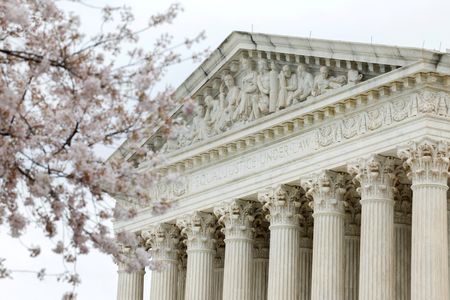 1
1 1
1
By John Kruzel
WASHINGTON (Reuters) – The U.S. Supreme Court on Thursday gave a boost to whistleblowers in their bid to revive lawsuits accusing pharmacy operators of knowingly overbilling government health insurance programs for prescription drugs at taxpayers’ expense.
The justices in a 9-0 decision threw out a lower court’s ruling that said the pharmacies could not be held responsible for fraud in whistleblower cases pursued against Safeway Inc, owned by Albertsons Companies Inc, and SuperValu Inc, part of United Natural Foods Inc.
At issue was whether companies can avoid liability for fraud by showing that an “objectively reasonable” reading of the law supported their conduct – regardless of whether they truly believed that interpretation at the time of their alleged wrongdoing.
The litigation was filed under a law called the False Claims Act (FCA) that lets individuals sue on behalf of the U.S. government when they have evidence of fraud against federal programs.
The whistleblowers, seeking monetary damages, accused the companies of offering prescription drugs at discounted prices to most customers paying out of pocket, while improperly charging higher rates to the government. Government healthcare programs reimburse pharmacies for dispensing covered drugs to beneficiaries.
Conservative Justice Clarence Thomas, who wrote the ruling, said of the intent requirement that “what matters for an FCA case is whether the defendant knew the claim was false,” adding that “it does not matter whether some other, objectively reasonable interpretation” exists.
Whistleblower Thomas Proctor sued Safeway while whistleblowers Tracy Schutte and Michael Yarberry sued SuperValu.
Whistleblower advocacy groups as well as a number of states had said a Supreme Court ruling against the whistleblowers would make it easier for fraudsters to evade accountability for filing false claims to the government and risked undermining state-administered Medicaid programs.
The whistleblowers said federal law requires pharmacies to bill the Medicare and Medicaid programs the same prices it charged the general public under a rate known as a pharmacy’s “usual and customary” price. They also said both companies knew they were defrauding the government and worked to conceal their pricing practices.
The companies sought to fend off the whistleblower lawsuits by claiming that Medicare and Medicaid billing requirements were unclear and that their practices were supported by a reasonable reading of the law.
The Chicago-based 7th U.S. Circuit Court of Appeals sided with the companies. The 7th Circuit said the pharmacy operators could not be held responsible for fraud given the “objectively reasonable” interpretation of the law in their favor – even if they did not actually believe that interpretation.
President Joe Biden’s administration backed the whistleblowers in their appeal to the Supreme Court. Lawyers for the administration urged the justices to reverse the 7th Circuit, saying the ruling undermined the False Claims Act.
(Reporting by John Kruzel; Editing by Will Dunham)